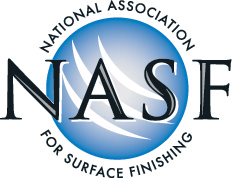| Presented in Partnership with: | |||
 |
 |
 |
 |
Search Results
The 50th William Blum Lecture, Alloy Plating by Heating Stacked Single Layers and the Possibility of its Application in the Future
Author: Hideyuki Kanematsu
Issue: , 2013In recent years, the plating industry has had the serious challenge of severe environmental regulations. Various "hazardous" metals, e.g., lead, cadmium, etc., have been the target for regulations one by one. As a result, a pessimistic outlook that any metal could be classified into a regulated one by laws has appeared. However, any element, or materials can present both hazardous and benign situations. In many cases, the so called "hazardous" metals would be toxic, when they exist as an ion, but not as a solid metal. Therefore, alloy plating can be one of the best solutions to avoid disuse by the environmental regulations with minor changes for production. Alloy Plating has been conventionally carried out by coelectrodeposition in solutions. On the other hand, the author has proposed a unique method of alloy coating through the combination of heat treatment and multiple plating. In this lecture, the author shows the results and the possibilities for application in the future.
 |
 |
 |
 |
 |
| Home | Subscribe | Regulations | Compliance Assistance | News | Resources | Resource Locators | Directories | Online Training | About | Search | Contact | NASF.org |
The information contained in this site is provided for your review and convenience. It is not intended to provide legal advice with respect to any federal, state, or local regulation.
You should consult with legal counsel and appropriate authorities before interpreting any regulations or undertaking any specific course of action.
Please note that many of the regulatory discussions on STERC refer to federal regulations. In many cases, states or local governments have promulgated relevant rules and standards
that are different and/or more stringent than the federal regulations. Therefore, to assure full compliance, you should investigate and comply with all applicable federal, state and local regulations.
